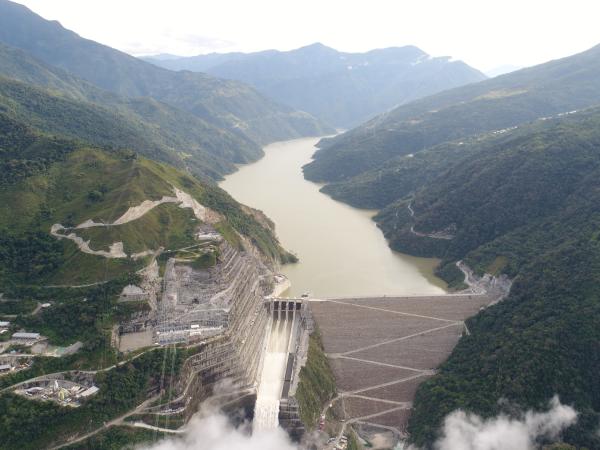Hidroituango, which will be the largest hydroelectric generation plant with a capacity of 2,400 megawatts, is less than a week from what is its maximum start-up date, November 30. With 5 days to go before this deadline, your operation faces more and more obstacles to start generating, so the risks of bank guarantees being executed and losing the reliability charge are increasing.
(EPM warns that the blockade in Hidroituango puts infrastructure at risk).
To prevent this scenario from occurring, EPM, the company responsible for the project, must put two units (1 and 2) to work so that they deliver the 600 megawatts of capacity they have.
A demonstration by residents of the areas surrounding the project prevented the passage of personnel and machinery, according to EPM, the company in charge of the work.
“This blockade jeopardizes the infrastructure and may increase risks for communities located downstream,” the company stated.
This adds to another set of challenges he faces. XM, operator of the electricity market, reported that although the first two units have requirements to be in the testing phase, it still requires another two before it can be declared in commercial operation.
The missing permissions are the endpoint transporter certificate, indicating that the generation units comply with the requirements and the agreement issued by the CNO, which endorses compliance with the technical tests.
“Once all the technical requirements established in the current regulation are met, EPM may declare units 1 and 2 in commercial operation before the System,” reported XM.
(The stopped electrical projects in which Minenergía will intervene).
However, EPM and local authorities have stated that they will not enter the agreed date. Daniel Quintero, mayor of Medellín and president of the Board of Directors of the public company, said that there were a series of requirements, such as the evacuations requested by the Risk and Disaster Management Unit.
“We cannot start the operation until the evacuations are given,” he said. He added that this is a process that must be carried out by the local mayors of the municipalities located downstream of the project.
These aspects led EPM to require the CREG (Energy and Gas Regulation Commission) a longer period to start operating before receiving economic sanctions. The Regulation Commission requested that the company send additional information to make a decision on the matter; however, according to industry sources consulted by Portafolio, up to now it has not been sent.
Until I receive this answer, the Creg will not be able to make an eventual decision.
In the event that the first two turbines of the power plant do not start operating, its effects will be in economic and energy aspects.
For example, the bank guarantee that would be executed for not delivering firm energy commitments (reliability charge) amounts to US$170 million. If this is applied, the money will be used to cover the restrictions, one of the components of the bill that are affected when a project does not start operating. With this, the bill of consumers could be reduced for a while.
Immediately afterwards, in accordance with the regulations of the Creg, the loss for the generator of the assignment of the Firm Energy Obligation and the associated remunerations is decreed. In the case of this project, this would mean resources of close to US$900 million, according to calculations by the former Vice Minister of Energy, Miguel Lotero.
Another consequence that could also occur is a higher cost of energy.
According to María Nohemi Arboleda, manager of XM, he pointed out that “the risk we see is that if Ituango does not enter we will be forced to pay more for energy and we are already in a price problem.”
To this would be added another danger: rationing. For this to be the case, some factors need to be added together. “In two years, if there is an El Niño Phenomenon, Hidroituango does not enter, renewables continue to be delayed and demand grows above the average scenario of Upme, we are going to ration,” Arboleda asserted.
Although EPM has suggested more time to start operating, it has not asked the Mining and Energy Planning Unit (Upme) to modify the Commissioning Date, since it is the entity in charge of carrying out this process, as confirmed by Portfolio.
Sources from the sector explained that what the public company is seeking is not to apply the rules of the Creg, referring to non-compliance in the commissioning of the power plant, with which they would not lose the charge for reliability.
For now, EPM has not given a tentative date to deliver power, although Antioquia governor Aníbal Gaviria clarified that it was a short-term issue. “It does not have to be an extension of the term of several months, but fundamentally it is a few days, a few more weeks to fine-tune everything,” he said.
Daniela Morales Soler
BRIEFCASE

















